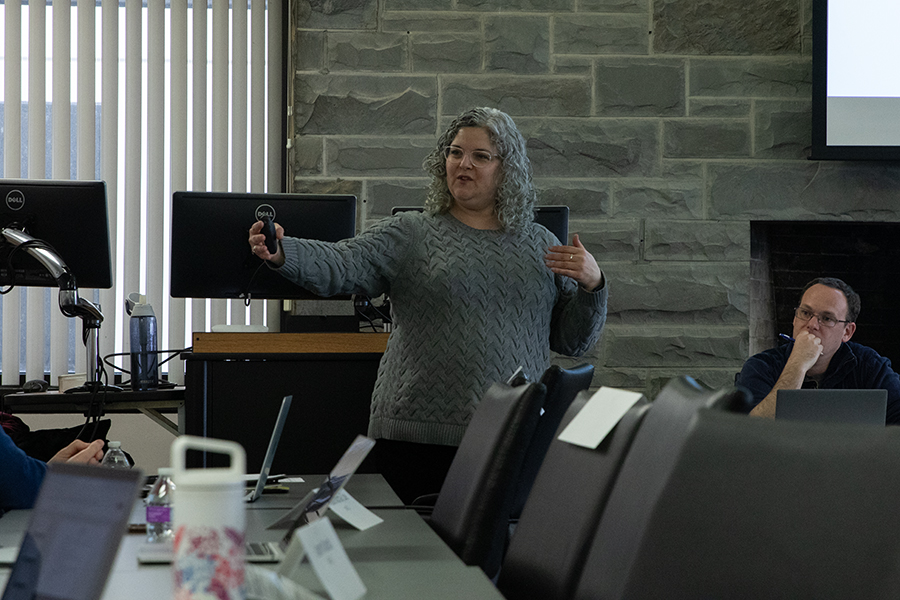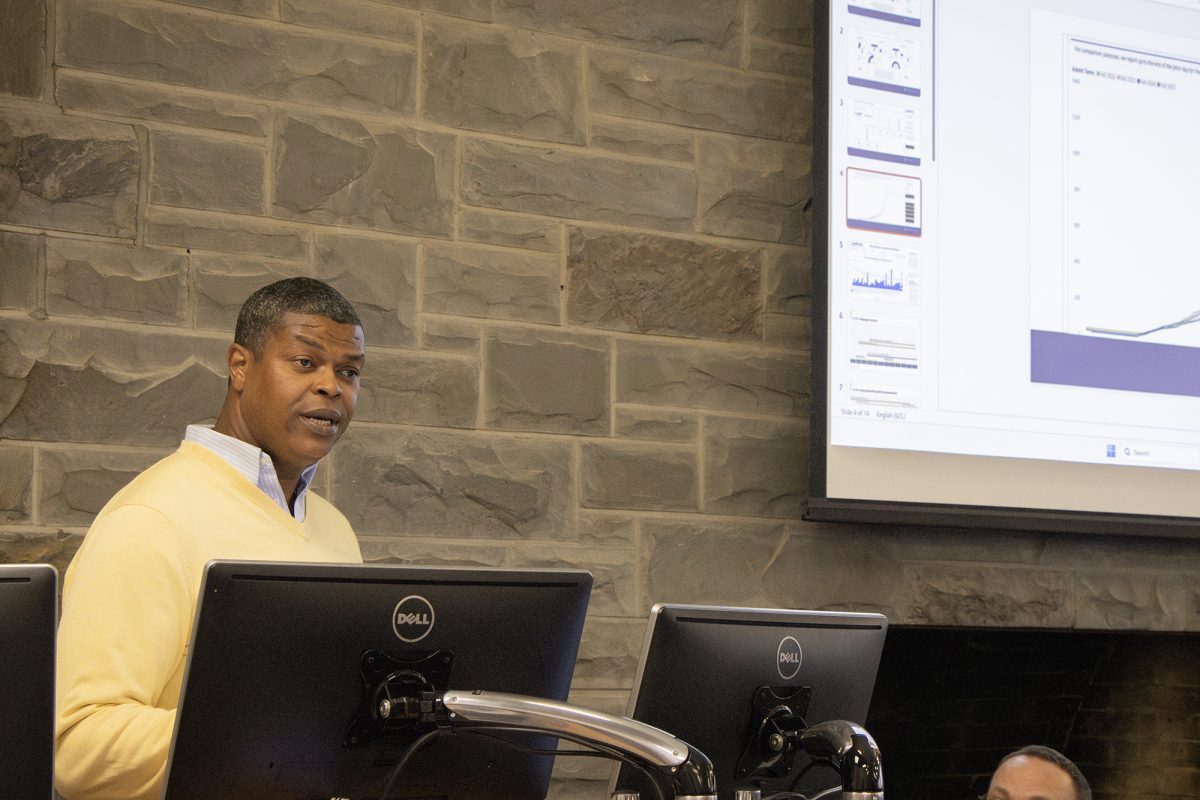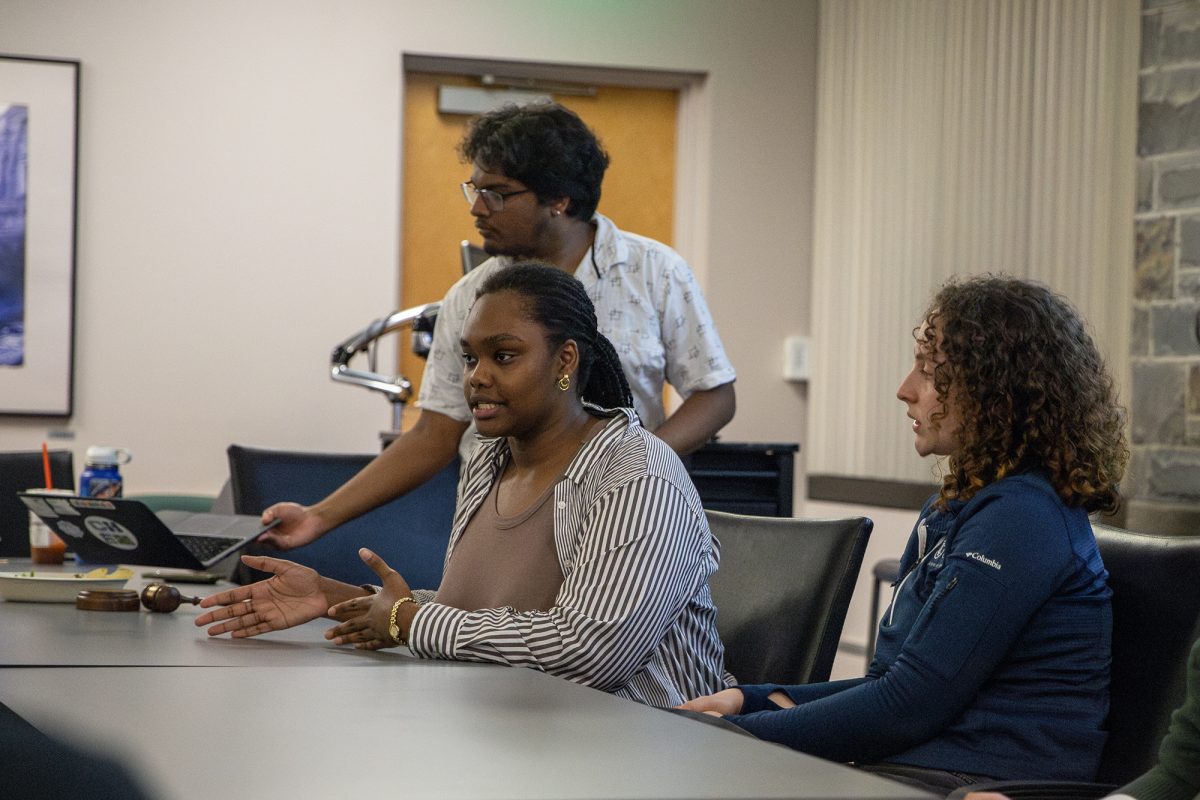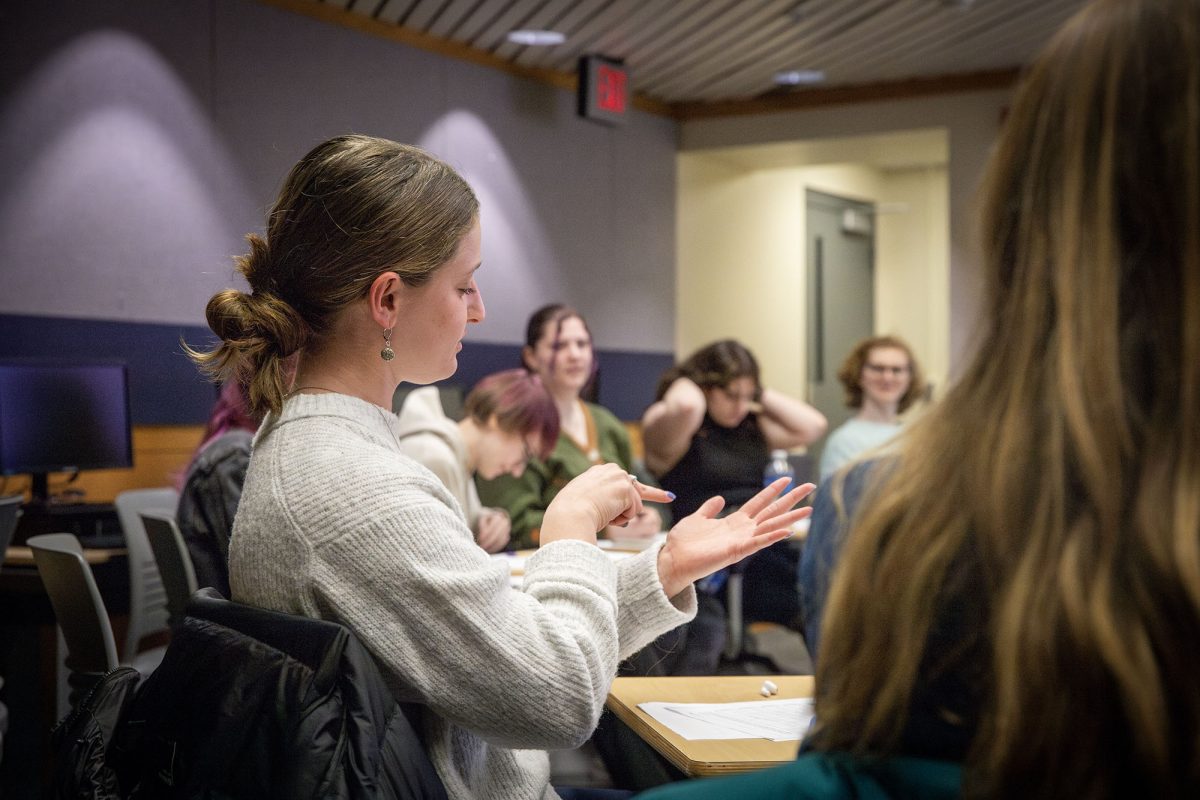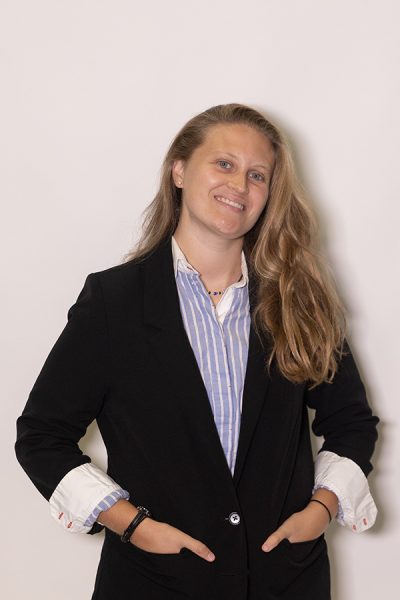Ithaca College’s Faculty Council met April 2 to clarify definitions relating to types of appointments and faculty evaluation within Sections 4.9 and 4.12 of the Faculty Handbook. The council also voted upon adding a “not applicable” choice in standardizing student statement evaluations, which are collected from students toward the end of each semester for feedback on courses.
The council also heard the Provost report and study abroad updates from Rachel Gould, senior director of study abroad in the Office of International Programs.
Student statement subcommittee
Dennis Charsky, professor and program director of communication management and design in the Department of Strategic Communication, and Paula Murray Cole, associate professor in the Department of Theatre and Dance Performance, represented the student statement subcommittee at the meeting. They led discussions about the recommendations made by David Hajjar, associate professor in the Department of Speech Language Pathology and Audiology, at the council’s March 5 meeting.
Hajjar recommended creating a preamble that would describe what the student statements are used for, limit the evaluations to 20 questions and change the points on Likert scales used in the evaluations from five-point scales to six-point scales. Likert scales measure the extent to which someone agrees with a statement, from low to high.
Dave Gondek, associate professor in the Department of Biology and chair of Faculty Council, said the Council of Equity, Inclusion and Belonging would be responsible for writing the preamble. Gondek said via email that any outcome of faculty council discussions would result in a change to student statements during Spring 2025, at the earliest. There is some significant administrative work that will need to be done by the Provost office, in conjunction with department input, before these changes can be implemented. He said this administrative work will occur throughout Fall 2024.
The council also discussed and voted upon adding a seventh, N/A choice to the Likert scale questions. Charsky said the N/A choice would be used by students who do not have any context to answer a question on the student statement. He said the language of the choice can potentially change to “not related to this course,” but cannot be a substitution for a “neutral” choice because that would skew the overall score. He said that while the “neutral” answer would be computed within the overall score of the instructor, N/A choices would not be computed at all. While the form will have seven visible choices, only six have the potential to affect the instructor’s score.
While discussing the N/A option, the council discussed moving away from the five-point Likert scale most departments in the college use. Hugh Egan, professor in the Department of Literatures in English, said most departments use a five-point Likert scale. He said the council should reconsider making the change.
“We might be just introducing too much all at once for departments who have been using a five-point scale for decades,” Egan said.
However, Mejda Bahlous-Boldi, associate professor and investment program director in the Department of Finance And International Business, said some departments within the School of Business use a four-point scale. Bahlous-Boldi said the N/A option was not necessary because the questions asked should apply to every course.
“We should make student evaluation questions that are tailored to each course,” Bahlous-Boldi said. “Some of the questions may be applicable to one course but may not be applicable to another lecture.”
The council decided to postpone a vote to make Likert scales used in the student evaluations from five-point scales to six-point scales until their May 7 meeting. The council also heard a report from Charsky and Cole specifying the types of answers from student statements. Charsky said the subcommittee read through every student statement submitted to the college from the Fall 2023 semester and extrapolated the main elements from the answers.
These elements were: scholarly teaching, course design, learner-centeredness and professional development. Charsky said the entire council will create 20 intentionally worded questions to address each of the elements and develop a six-point Likert scale, which will result in standardizing all student statements.
Faculty Handbook
The council spoke with Melanie Stein, provost and senior vice president for academic affairs, about inconsistencies of definitions within the Faculty Handbook, one of which was defining “excellent teaching” in section 4.12 Evaluation of Faculty.
As of March 5, when the handbook was last updated, the definition of excellent teaching incorporates well-designed lessons, carefully planned curriculum, activities and assessments that facilitate the meaning of learning objectives.
Leann Kanda, associate professor in the Department of Biology, said the definition does not include demonstrating competence in the content.
“From that description, you could be teaching absolutely 100% B.S.,” Kanda said.
Stein said the difficulty of writing the Faculty Handbook is that at its core, it is a governance document that must have clear definitions that must include technical language. She said the updated document was stripped down to include simpler and more important definitions. She said that in a previous version of the handbook, excellent teaching was in part defined by displaying self-confidence which has since been removed.
“I think it’s very difficult to define excellent teaching in a paragraph,” Stein said. “We decided we have to have something in there saying we care about teaching. However, we’re not going to be able to define excellent teaching in a paragraph.”
Kanda also said she would love to see the term “non-tenure eligible” be redefined or expanded to include specifics within the Faculty Handbook. She said the name defines people only by what they are not and does not define those faculty with their professorial title.
Stein said that when reviewing the language in the handbook, she deliberately changed references of “NTENs” to “faculty on an NTEN appointment,” to make the focus of the reference more on the appointment rather than the faculty member. She said the technical use of such language is necessary for the handbook, but should not continue to be used to refer to those faculty members in conversation.
The council also discussed the duties of a faculty adviser as defined within the handbook. The definition of an adviser’s duties include: helping students assess academic strengths and weaknesses, explore electoral career interests and goals, and help students understand the consequences of their decisions.
Ted Galanthay, associate professor in the Department of Mathematics, said the handbook does not include language regarding advisors drawing upon their own experiences to help guide a student. The council did not decide to add information to the definition.
“I think these are good qualities of an advisor,” Galanthay said. “However, if it’s not clearly stated, it may not encourage junior faculty to take from their own personal experiences to help students.”


